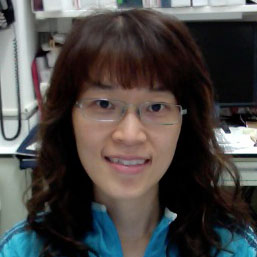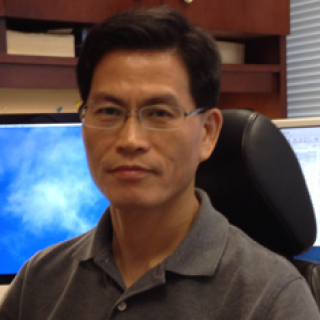
Jung-Eun Park, Ph.D.
- Center for Cancer Research
- National Cancer Institute
- Building 37, Room 3118
- Bethesda, MD 20892-4254
- 240-760-7281
- parkju@mail.nih.gov
RESEARCH SUMMARY
Dr. Park's primary research interest lies in understanding the physiological functions of two functionally distinct mammalian polo-like kinases, Plk1 and Plk4, which appear to play key roles in mitotic progression and centriole duplication, respectively. Dr. Park is also interested in developing anti-Plk1 therapeutic agents by exploiting both potential leads from our own research and from the unique resources that NCI provides to the intramural community.
Areas of Expertise

Jung-Eun Park, Ph.D.
Research
Dr. Park's primary research interest lies in understanding the physiological functions of two functionally distinct mammalian polo-like kinases, Plk1 and Plk4, which appear to play key roles in mitotic progression and centriole duplication, respectively. Dr. Park is also interested in developing anti-Plk1 therapeutic agents by exploiting both potential leads from our own research and from the unique resources that NCI provides to the intramural community.
Publications
Phase separation of Polo-like kinase 4 by autoactivation and clustering drives centriole biogenesis
Molecular basis for unidirectional scaffold switching of human Plk4 in centriole biogenesis
Serendipitous alkylation of a Plk1 ligand uncovers a new binding channel
Biography

Jung-Eun Park, Ph.D.
Dr. Jung-Eun Park joined the NIH in 2002 as an Office of International Affairs' predoctoral fellow and received her Ph.D. in 2004 from the Department of Biology at the Dong-A University, South Korea. She then obtained her postdoctoral research training at the NCI and became a staff scientist in the Laboratory of Metabolism, CCR, in 2010.
Dr. Park is the recipient of several NCI Federal Technology Transfer Awards for her inventions and patents related to Plk1. She serves as an editorial board member for Cells.
